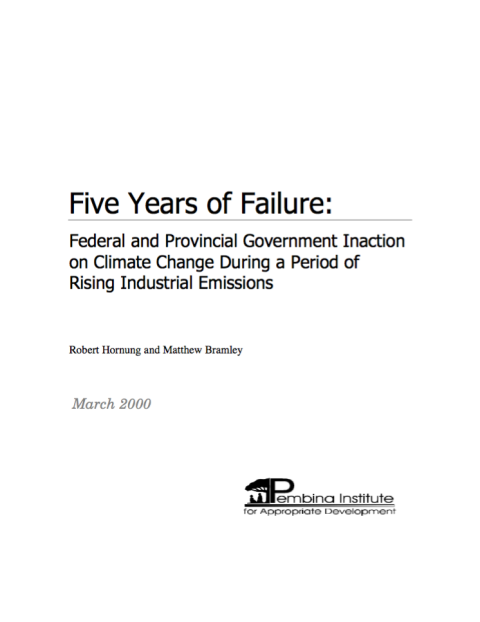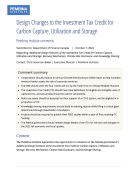The Pembina Institute has conducted two new studies. The first is a measure-by-measure review of what happened to the 88 measures recommended to federal and provincial Ministers at the conclusion of the 1993-94 national consultation process on climate change. The second study examines for the first time on a company-by-company basis how Canada's industrial greenhouse gas emissions have changed over the years during which the flagship national program to address climate change — Canada's Climate Change Voluntary Challenge and Registry Program (VCR) — has relied entirely on voluntary action by industry.
- We found that for 37 of the 88 measures, no meaningful action has been taken. Taking into account partially implemented measures, only 33 percent of the 88 measures have been implemented (29.25 out of 88). Measures involving regulatory and financial incentives, as opposed to voluntary, education or research measures, had an implementation rate of just 15 percent.
- Our analysis of the VCR shows that on average, the emissions of companies making detailed submissions to the VCR do not appear to be rising more slowly than national trends. We provide detailed information on individual companies that allows their performance to be assessed and compared.
- Our twin analyses of the measures that governments failed to implement and of the flagship national program upon which they have been relying over the past five years both point to the same conclusion: voluntary measures are wholly insufficient to meet Canada's climate change challenge.
If current policies continue, Canada's greenhouse gas emissions are projected, by 2010, to be 35 percent higher than the level to which Canada has committed to reduce them under the Kyoto Protocol, during the period 2008-2012. We offer recommendations to the federal and provincial Ministers of the Environment and Energy as to how they should address this situation.









